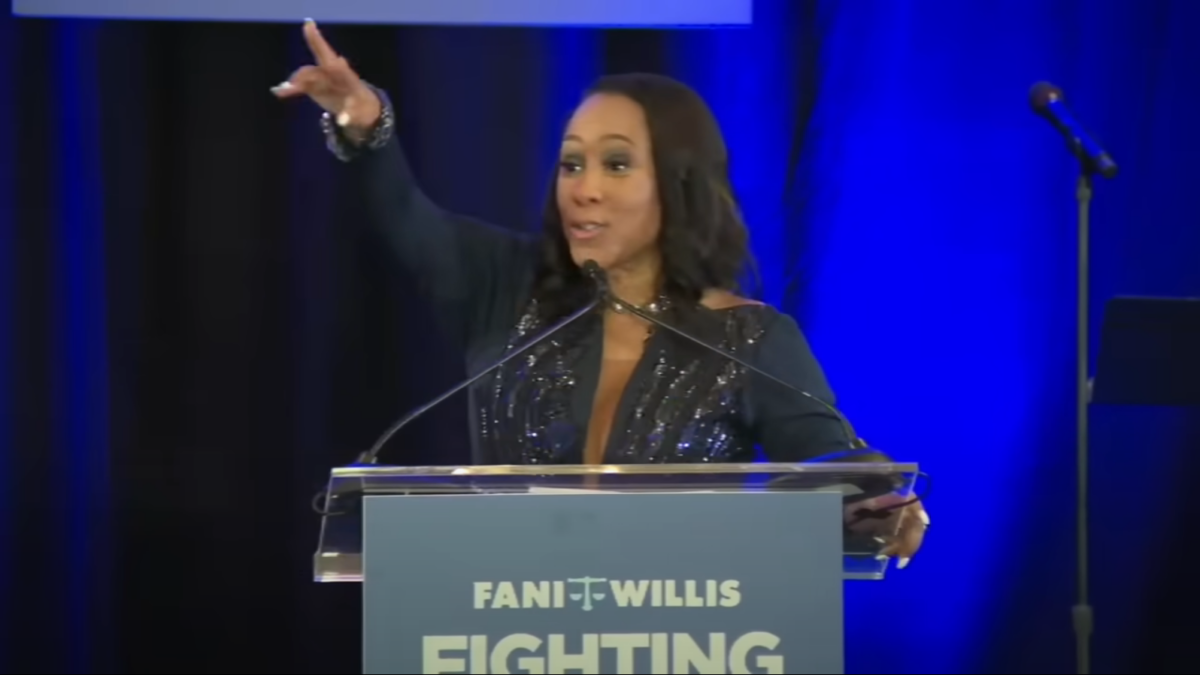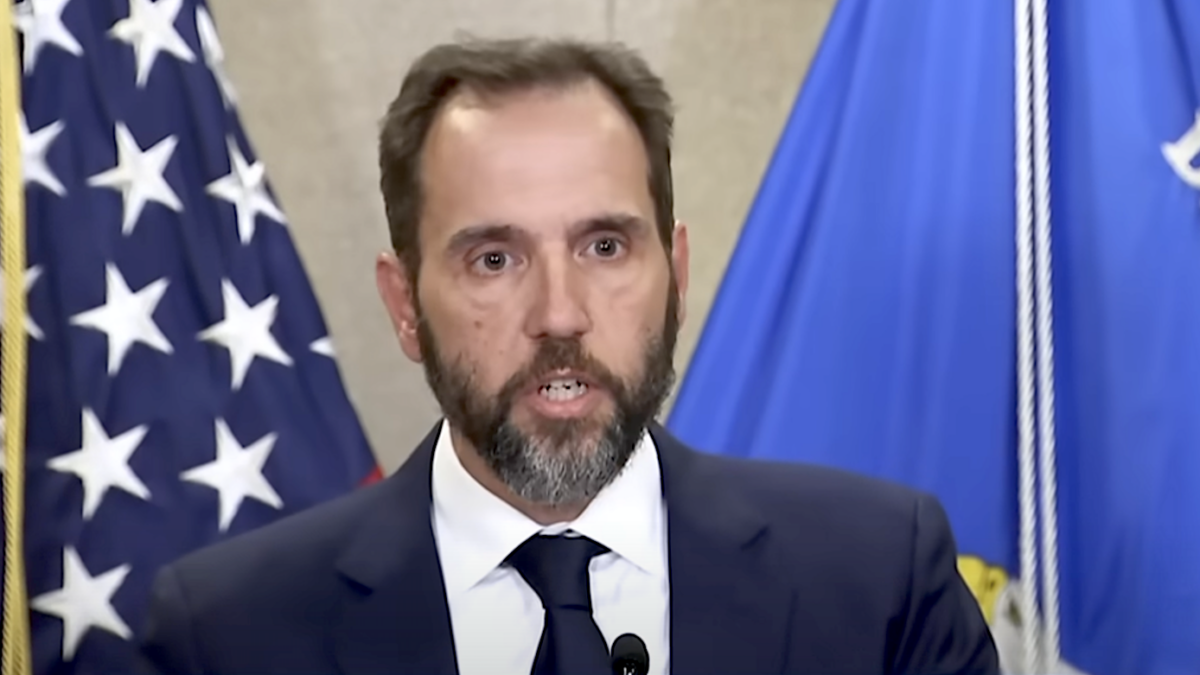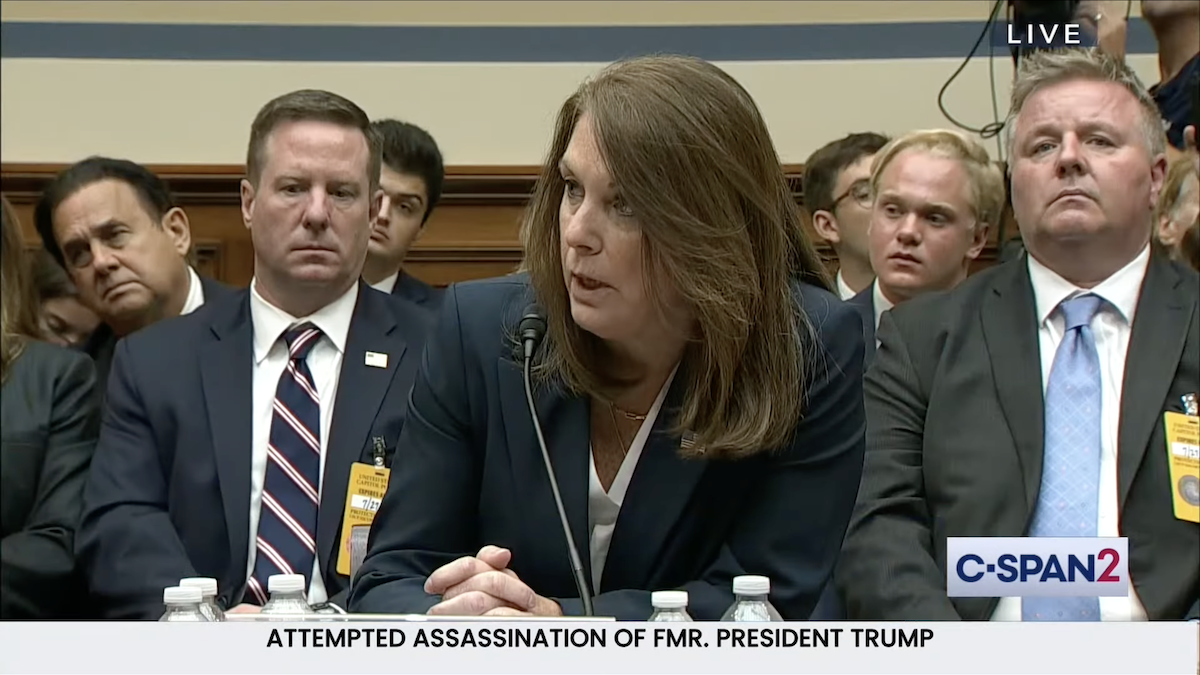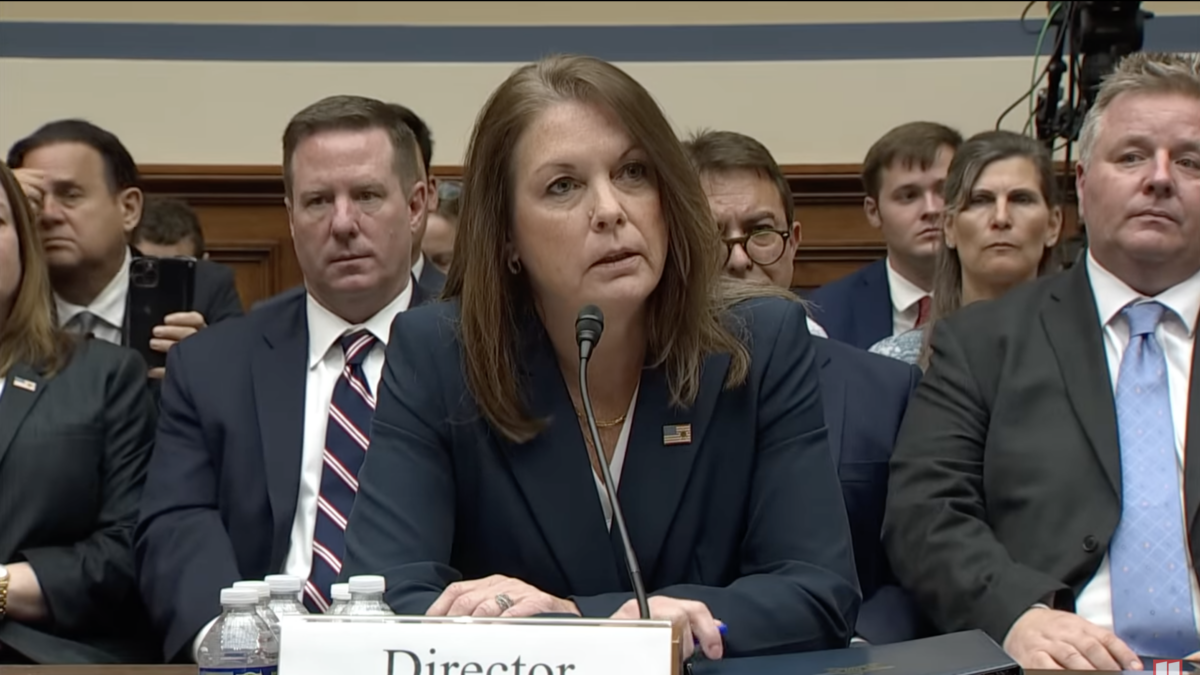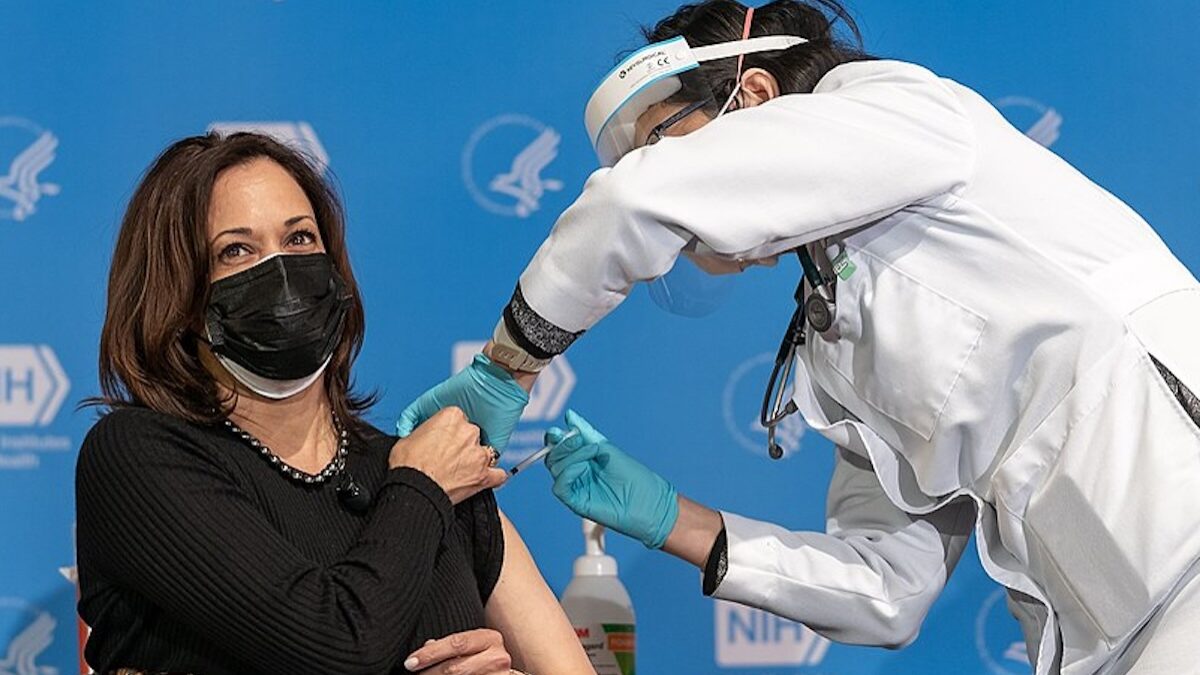Explosive allegations have surfaced in Fulton County, Georgia, in a RICO suit filed by State Rep. Mesha Mainor against embattled Fulton County District Attorney Fani Willis, Fulton County Commissioner Marvin Arrington Jr. (who is an attorney and also the son of civil rights activist and longtime Atlanta politician Marvin Arrington Sr.), and Fulton County itself.
Mainor accuses Willis and Arrington of a bribery scheme, alleging that the commissioner — who helps oversee the budget of the DA’s office — used his influence to get a cushy plea deal for a client who was accused of stalking Mainor and that Willis’ office played along. Mainor accuses both defendants as well as the Fulton County Ethics Board of violating Georgia’s Racketeer Influence and Corrupt Organizations (RICO) Act in O.C.G.A. §16-14-4. She also accuses Willis and Arrington, in their individual and official capacities, of “intentional infliction of emotional distress.”
In an hour-long interview, Mainor and her attorney, Mario Williams, detailed her shocking and disturbing allegations, which are also explained in the complaint.
A Summary of the Complaint
Mainor ran for a seat on the Atlanta City Council in 2019, before she was ultimately elected to Georgia’s House as the representative for District 56 in 2020. In January 2019, during her first race, a businessman named Corwin Monson, whom she knew through mutual associates, volunteered to assist with her campaign. But the lawsuit alleges that by February of that year, she was forced to terminate Monson from his volunteer position “after witnessing his unruly, belligerent behavior.”
At that point, the complaint claims, Monson began to stalk Mainor, sitting “outside her home,” “showing up (uninvited) at campaign events” and following closely on her heels, joining Mainor’s church, and leaving repeated unwanted and, at times, threatening phone calls and voicemails — some of which he even turned into a song.
He allegedly claimed he was “in love” with Mainor and “even showed up at her home” with an engagement ring to propose marriage to her in front of her two daughters, although they had “never” engaged in any kind of “romantic relationship,” the complaint says.
The suit says that “in June 2019, Mr. Monson was cited for criminal trespass after coming to Mainor’s home and refusing to leave her property.” Then in August 2019, Mainor “filed a Temporary Protective Order (TPO) against Mr. Monson,” which was granted. Monson was then “arrested for violating the TPO” in September 2019 and again in September 2020. He was later indicted on two counts of aggravated stalking and faced “up to twenty years in prison.”
Monson then hired Commissioner Arrington, who is alleged to be a friend of Monson’s, as his defense attorney in October 2020. This is the same Arrington who sits on the Fulton County Board of Commissioners, which appropriates the funds for Fulton County courts as well as the district attorney’s office, as Willis brings expensive RICO cases against former President Donald Trump and his co-defendants, another against rapper Young Thug, and also tries to clear an enormous backlog of cases caused by the Covid epidemic.
The complaint further alleges that “from November 2020 through October 2021, Defendant Commissioner Arrington unduly influenced the criminal proceedings of both the aggravated stalking cases on behalf of Mr. Monson.”
Arrington is said to have used his influence to broker a plea deal favorable to Monson with then-District Attorney Paul Howard, which would have allowed Monson to admit to a single misdemeanor stalking charge instead of a felony. Arrington is also alleged “on information and belief” to have had ex parte communications with Superior Court Judge Kimberley Adams and to be heard in the jailhouse recordings admitting to discussing the case with Willis before she took office in January 2021.
But following the release of jailhouse recordings of highly controversial conversations between the two, Arrington resigned as Monson’s attorney in December 2020. Yet Mainor maintains that “although Defendant Commissioner Arrington stepped down as Mr. Monson’s criminal attorney, he continued to wield influence over the criminal case, namely, he maintained that Mr. Paul Howard offered Mr. Monson a plea deal consisting of the alleged felony being reduced to a misdemeanor.”
After Mainor filed a complaint against Arrington with the Fulton County Ethics Board, Fox 5 Atlanta obtained the jailhouse recordings from the Fulton County district attorney’s office through an open-records request. In them, Arrington, who knew he was being recorded, seems to boast about his relationship and influence with the DA’s office and is heard claiming, “I can get the DA to agree to a misdemeanor plea, but she [Judge Ellerbe] might not accept it.”
If there was a corrupt quid pro quo between the two, as the complaint alleges, it appears Arrington may have kept his end of the bargain. He has been a fierce advocate for increasing the DA’s budget, arguing vehemently that the county should raise the millage rate on its taxpayers if necessary.
Willis Is Elected
The complaint claims that “Arrington commits bribery when he releases money to the District Attorney’s Office in exchange for preferential treatment when he is working as a criminal defense attorney” and that “Willis engaged in bribery when she gave Commissioner Arrington and Monson, his client, preferential treatment under the law.”
Mainor’s attorney, Mario Williams, explained to me that aggravated stalking is normally a non-bondable offense in Georgia. The complaint says that “the District Attorney’s Office policy was to only offer misdemeanor pleas in place of felonies only in extraordinary circumstances,” that the “policy was to punish repeat violent criminal offenders to the full extent of the law,” and that the goal of the office’s policy “was to lower the occurrence of Domestic Violence against women in Fulton County, Georgia.”
The suit also alleges that after defeating District Attorney Paul Howard in 2020, Fani Willis took over the district attorney’s office and the prosecution of Monson, who insisted through his new counsel that the previous plea deal with Howard be honored. That agreement would have allowed Monson to plead guilty to one count of misdemeanor stalking instead of two felony counts.
“Although Monson ultimately was not offered the misdemeanor plea deal,” the suit reads, “DA Willis did dismiss one of his aggravated stalking cases. On the remaining aggravated stalking case, DA Willis offered Monson a plea of 3 years, to serve 1 in prison, the balance on probation, with credit for the time he had already served.” But Mainor says she was not consulted on that agreement, as required by Marsy’s Law.
Out of desperation, Mainor then turned in October 2020 to the United States Department of Justice’s Office on Violence Against Women for help, and after Monson violated the conditions of his bond, it was revoked by Superior Court Judge Ellen Ellerbe. He was immediately sent back to the Fulton County jail and stayed there until he was permitted to plead “no contest” to a single count of felony stalking. He was credited for time served, was released on probation again in November 2021, and, according to Mainor, went right back to stalking her.
Mainor then sued Willis and Arrington in federal court for a civil rights violation, but “U.S. District Judge Sarah Geraghty dismissed the case in March [2023], ruling that the alleged actions couldn’t constitute a civil rights violation,” even if Mainor’s claims were true.
Mesha Mainor Switches Parties
When I interviewed Mainor, she explained to me that among other issues, she decided to run for office because she wanted to focus on school choice and crime reduction. She won a three-way primary against the Georgia Democratic Party’s preferred candidate but was then surprised when she received a cold reception from her party the day she first walked into the state capitol as the people’s representative from House District 56.
Try as she might, her fellow Democrats did not support her legislation, so she turned to Republicans, who willingly helped. Finally, Mainor said, after being the victim of nearly five and a half years of stalking and harassment, as well as her continued conflict with Fulton County Democrats over preferential treatment of her stalker, she switched parties.
I asked Mainor how she has been received by the Republican Party, and she indicated that she has felt warmly welcomed. Mainor also said she has heard from many of her Democrat constituents who expressed their continued support and encouragement. But she will face a tough battle for reelection, as her district is considered a safe seat for Democrats.
Following our interview in April, I sent her a follow-up text to ask, “Your stalker is currently back out on the streets — correct?”
In response, she sent me this text, and later this photo:
“Correct. He is on the ballot against me in the current election.”

Monson lost in a four-way May 21 Democratic primary, receiving 194 votes out of 3,654 (5.31 percent) of the votes cast.
When asked for comment on Mainor’s allegations, Fulton County Attorney Courtney Kramer, who is Fani Willis’ Republican opponent in this fall’s general election, responded in an email saying, “Rep. Mainor followed the process and trusted in our government and district attorney’s office to do their job. Unfortunately, Rep. Mainor fell victim not only to her perpetrator, but this time she fell victim to the mismanagement and corruption of various elected officials who chose not to protect her and protect their self-interests instead.”
I contacted the Media Relations Division of Fulton County to request interviews with Willis and Arrington and emailed them but have received no reply.
